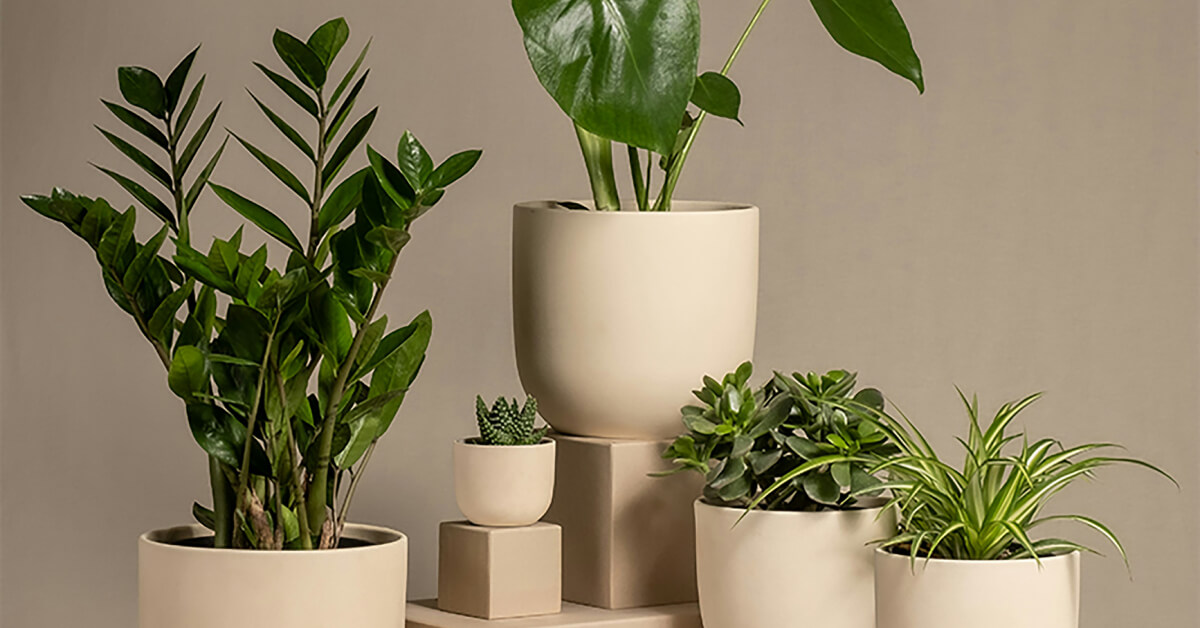Indoor plants do more than just beautify a space; they can significantly improve mental and emotional well-being. Numerous studies have shown that interacting with plants can have a positive impact on mood, reduce stress levels, and promote feelings of calm. These benefits make plants not just a decorative addition to your home or office but an essential element in fostering a happier, healthier environment.
The Connection Between Nature and Mental Health
Spending time in nature or having plants in one’s surroundings can have a profound effect on mental health. Exposure to greenery and natural elements has been linked to reductions in stress, anxiety, and depression. This connection is known as biophilia, the innate human attraction to nature. Biophilia theory suggests that humans are psychologically programmed to respond positively to natural environments.
In a modern world that is often fast-paced and technology-driven, plants offer a natural counterbalance, providing a sense of tranquility and well-being. The presence of plants in living or working spaces can recreate a piece of nature indoors, offering a much-needed escape from the daily grind. Having greenery around can foster a sense of peace, reduce mental fatigue, and promote a more positive outlook on life.
How Plants Impact Mood and Emotions
Research has consistently shown that plants have a significant effect on mood and emotions. Their presence in a room can create a calming atmosphere, making people feel more relaxed and less anxious. One of the primary ways plants influence mood is through their ability to improve air quality. Clean, fresh air is associated with increased energy levels and better mental clarity, which in turn supports a more positive mindset.
Additionally, tending to plants can be a form of mindfulness. The act of watering, pruning, or simply observing a plant’s growth requires attention and care, which can act as a stress-relieving activity. The repetitive motions involved in plant care, such as watering or gently wiping the leaves, have been shown to lower heart rate and blood pressure, providing a sense of relaxation and grounding.
Plants and Stress Reduction
Stress is a common issue faced by many, especially in urban environments or high-pressure work settings. Plants have been shown to help reduce the physical and psychological effects of stress. In one study conducted by the University of Hyogo in Japan, participants who interacted with plants experienced a significant reduction in their heart rate and blood pressure. This suggests that plants have a direct physiological effect on reducing stress.
The act of caring for plants has also been shown to promote feelings of satisfaction and accomplishment, which can help counteract stress. When someone takes time to nurture a plant, it creates a sense of purpose and control. Plants provide a simple and effective way to focus attention on something positive, which can shift the mind away from negative thoughts or stressors.
How Plants Improve Focus and Productivity
Plants also contribute to improved focus and productivity, particularly in work environments. In offices or study areas, the presence of plants has been shown to enhance concentration, creativity, and cognitive function. The addition of plants in a workspace can increase attention span and improve problem-solving abilities. According to a study published in HortTechnology, office workers with plants in their environment experienced a 15% increase in productivity.
Plants can help reduce feelings of anxiety or mental fatigue, which often hinder productivity. Their ability to improve air quality and create a more comfortable environment leads to better mental clarity, allowing individuals to focus on tasks for longer periods of time. Having plants in workspaces can also foster a more positive, inviting atmosphere that promotes collaboration and creativity.
Plants Help Foster Social Connections
While plants provide personal benefits, they can also improve social connections in shared spaces. In environments like offices or communal living areas, plants serve as a conversation starter, encouraging social interaction. The act of discussing plant care, sharing tips, or simply admiring the plants together can create a sense of community.
In fact, plants have been shown to help create a more positive work or social environment. According to a study published in the Journal of Environmental Psychology, the presence of plants in the workplace was linked to improved interpersonal relations and communication. This suggests that plants not only enhance individual well-being but also contribute to stronger, more cohesive social bonds.
The Role of Indoor Plants in Creating a Calming Environment
The calming effect of plants is also linked to their ability to reduce noise levels and enhance the overall ambiance of a space. Certain plants, like large leafy varieties, can absorb sound and reduce background noise, creating a quieter, more peaceful environment. This makes them ideal for bedrooms, offices, or any space where relaxation and focus are needed.
Additionally, plants have the power to influence the aesthetics of a room, creating an inviting and soothing atmosphere. Their green tones and textures naturally draw the eye, offering visual stimulation that is pleasant without being overwhelming. This visual appeal contributes to a sense of comfort and well-being, making spaces feel more homely and balanced.
How to Maximize the Happiness Benefits of Plants
To fully reap the mental health benefits of plants, it is important to consider the types of plants that best suit one’s environment. Low-maintenance plants like the Snake Plant, ZZ Plant, and Spider Plant are ideal for those with limited time or experience, while Peace Lilies, Calatheas, and Aloe Vera provide additional emotional and health benefits. It’s essential to place these plants in areas where they will thrive, ensuring they receive the proper amount of light and care.
Regularly interacting with plants—whether it’s through watering, pruning, or simply taking time to appreciate their beauty—can enhance their positive effects on mood and mental well-being. Ensuring that the plants are healthy and properly cared for creates a nurturing environment, which in turn supports emotional balance and a sense of happiness.

